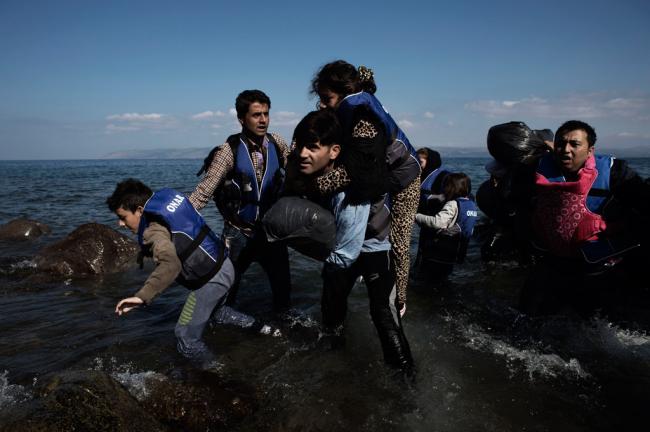
Refugees and migrants taking 'enormous risks' to reach Europe – UN agency
“This report clearly shows that the lack of accessible and safe pathways leads refugees and migrants to take enormous risks while attempting to reach Europe, including those simply trying to join family members.” said Vincent Cochetel, the Office of the UN High Commissioner for Refugees (UNHCR) Director of Europe Bureau, in a news release announcing the report.
According to Desperate Journeys, issued on Monday by UNHCR, the “closure” of the Western Balkan route and the European Union (EU)-Turkey Statement in March 2016, caused a drastic decrease in the number of people reaching Greece via the Eastern Mediterranean route.
However since then, the Central Mediterranean route from North Africa to Italy become the primary entry point to Europe and arrival trends in Italy show that the primary nationalities who crossed to Greece had not switched in significant numbers to the Central Mediterranean route.
In addition to drowning, migrants and refugees also risk of being kidnapped, held against their will for several days, physical and sexual abuse, torture and extortion by smugglers and criminal gangs at several points along key routes.
The Central Mediterranean route
The UN agency pointed out that in 2016, some 181,436 arrived in Italy by sea in need of international protection, and also victims of trafficking and migrants seeking better lives. About 90 per cent of them travelled by boat from Libya, and the top two nationalities of those arriving were Nigerians (21 per cent) and Eritreans (11 per cent).
This route is particularly dangerous and, in 2016, recorded more deaths at sea than ever before.
Furthermore, children making this journey are especially vulnerable, and the number of unaccompanied and separated children arriving is increasing. Last year more than 25,000 came, representing 14 per cent of all new arrivals in Italy.
“Their number more than doubled compared to the previous year,” said UNHCR.
The Western and Eastern Mediterranean routes
The report also showed that in the last part of 2016, more people reached the continent through the Western Mediterranean route, either by crossing the sea to Spain from Morocco and Algeria, or by entering the Spanish enclaves of Melilla and Ceuta.
Similarly, people continued to leave Turkey along the Eastern Mediterranean route from April onwards, but in much smaller numbers. Most crossed the sea to Greece or Cyprus, others also crossed via land into the country or into Bulgaria.
Most who arrived by sea to Greece (87 per cent) came from the top ten refugee producing countries.
This was also the case for those who continued to move along the Western Balkans route: in Serbia, for instance, 82 per cent of those who arrived came from Afghanistan, Iraq and Syria and almost half are children – 20 per cent of those unaccompanied.
These numbers, however, numbers have reduced since April 2016, noted UNHCR.
Additionally, according to the study, tens of thousands of people also have been reportedly pushed back by border authorities in Europe, including in Bulgaria, Croatia, Greece, Hungary, Serbia, Spain, and the former Yugoslav Republic of Macedonia, with many cases of alleged violence and abuses in an apparent attempt to deter further entry attempts.
Photo: UNICEF/Alessio Romenzi
Source: www.justearthnews.com
Support Our Journalism
We cannot do without you.. your contribution supports unbiased journalism
IBNS is not driven by any ism- not wokeism, not racism, not skewed secularism, not hyper right-wing or left liberal ideals, nor by any hardline religious beliefs or hyper nationalism. We want to serve you good old objective news, as they are. We do not judge or preach. We let people decide for themselves. We only try to present factual and well-sourced news.







